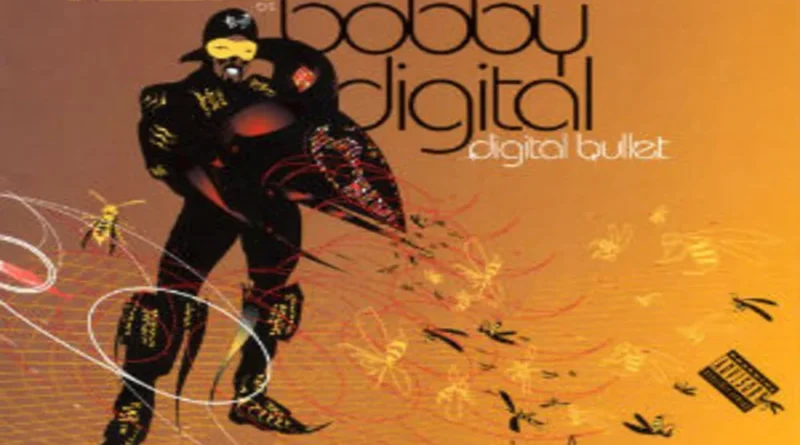hiphopisntdead digital bullet
Hip-hop, a style birthed from the struggles and triumphs of marginalised groups, has evolved in inconceivable ways when you consider its inception inside the Seventies. From the streets of the Bronx to international degrees, the genre has usually reinvented itself. However, with each new technology comes critics who claim the style is dying or losing its roots. This sentiment has been met with fierce resistance from actions, structures, and artists who attempt to hold the culture alive, adapting to fashionable trends without leaving behind its foundational factors.
One such movement is “HipHopIsntDead,” a slogan and sentiment echoed by folks that firmly accept as true that hip-hop keeps thriving no matter modifications in sound, fashion, and shipping. A vital improvement in this ongoing communique is the “Digital Bullet,” a time period used to describe the model of hip-hop to the virtual age. This transformation has been each a project and a possibility for artists, lovers, and the lifestyle as a whole.
In this newsletter, we can explore what the “Digital Bullet” represents, how it has impacted the sector of hip-hop, and why the genre is a long way from lifeless.
The Rise of the Digital Era in Hip-Hop
As the era advanced, so did the approaches wherein track was created, allotted, and consumed. From vinyl statistics to CDs and subsequently virtual downloads, the evolution of music consumption has been fast. The digital age added with it and technology of comfort, in which lovers may want to get right of entry to their favoured songs with a click on of a button. This shift appreciably modified the hip-hop panorama.
In the early 2000s, the upward push of systems like Napster and LimeWire disrupted the music enterprise by means of supplying unfastened, albeit illegal, downloads of songs. For hip-hop, this turned into a blessing and a curse. While report sales suffered, artists received large publicity. Underground and impartial rappers who formerly struggled to get airtime on conventional media stores unexpectedly had a platform to attain audiences internationally.
As a result, hip-hop flourished online, with websites, blogs, and social media turning into key gear for promoting new tunes. Artists no longer needed important label backing to be triumphant. Instead, platforms like MySpace, YouTube, and SoundCloud gave an upward push to a new technology of rappers who built fanbases immediately via virtual systems. This is in which the concept of the “Digital Bullet” comes into play.
The “Digital Bullet” Explained
The “Digital Bullet” represents the unstoppable force of hip-hop inside the digital technology. Just as a bullet is rapid, powerful, and capable of leaving an enduring impact, hip-hop’s presence within the virtual global has been further formidable. This phenomenon symbolises the genre’s ability to evolve and adapt to the changing tune landscape.
In the past, success in hip-hop became frequently decided by way of file income, radio play, and bodily album distribution. However, with the virtual revolution, the way achievement is measured has shifted. Artists are actually judged through their online presence, streaming numbers, social media influence, and viral moments.
The “Digital Bullet” has also allowed for an extra democratised form of hip-hop, where everybody with talent and a Wi-Fi connection could make their voice heard. Platforms like SoundCloud and Bandcamp have given rise to the “SoundCloud rapper” phenomenon, in which artists like Lil Uzi Vert, XXXTentacion, and Chance the Rapper have achieved mainstream fulfilment without conventional enterprise backing.
This shift to digital has no longer most effectively modified how track is eaten up however also how it’s far created. Artists now have to get admission to brilliant manufacturing equipment from their laptops. Beats, lyrics, and complete songs can be produced and dispensed from the comfort of 1’s domestic. The rise of virtual beat-making software programs like FL Studio, Ableton Live, and GarageBand has made track production greater on hand to aspiring artists, fueling creativity in ways in no way imagined earlier than.
The Impact on Hip-Hop Culture
The “Digital Bullet” has had a profound impact on hip-hop lifestyle as well. In the past, gatekeepers including document labels, radio stations, and track video channels dictated who should make it in the industry. Today, artists can pass those traditional avenues and pass immediately to their audience, developing a greater direct connection between musicians and enthusiasts.
This alternative has allowed for the rise of area of interest subgenres inside hip-hop, together with lo-fi, lure, drill, and experimental styles. Artists do not want to comply with mainstream tastes to succeed; they are able to find their audience through centred digital advertising and online communities. For example, artists like Tyler, The Creator and Earl Sweatshirt have built careers by appealing to extra alternative, avant-garde hip-hop enthusiasts, which wouldn’t have been viable inside the pre-virtual generation.
Social media has also played a large role in shaping current hip-hop. Platforms like Instagram, Twitter, and TikTok permit artists to interact directly with their lovers, share in the behind-the-scenes content material, or even drop marvel albums. This constant interplay between artists and their followers has turned enthusiasts into lively contributors within the tune introduction and merchandising method.
The rise of “TikTok rappers” demonstrates how the “Digital Bullet” keeps shaping the future of hip-hop. Songs that cross viral on TikTok can cause in a single day achievement for previously unknown artists. Viral challenges, dance exercises, and memes have emerged as important tools for promoting new tracks, making TikTok one of the most influential structures in cutting-edge hip-hop.
Challenges of the Digital Age
While the “Digital Bullet” has propelled hip-hop forward, it has additionally added new demanding situations. With the oversaturation of the marketplace, it could be difficult for new artists to face out. The virtual era has made it easier to release songs, but that also means the opposition is fiercer than ever. Without a strong advertising strategy, even the most proficient artists can battle to benefit reputation in a crowded area.
Another undertaking is the issue of piracy. Although streaming systems have in large part curbed illegal downloads, piracy remains a problem within the song enterprise. Artists frequently wish to earn a fair income from their work because of low streaming royalties, forcing them to depend upon touring, merchandise, and brand deals to make a living.
Moreover, even as the virtual global lets in for extra accessibility, it also results in shorter attention spans. With countless moves of content material available always, artists need to constantly release new clothes to stay relevant. This has brought about a tradition of quantity over pleasant, with a few artists prioritising brief, viral hits over crafting undying tracks.
The Future of Hip-Hop inside the Digital Age
Despite these demanding situations, hip-hop is far from dead. In fact, the style is more colourful than ever. The “Digital Bullet” has not simplest ensured the survival of hip-hop but has allowed it to thrive in new and revolutionary ways. Artists are continuously finding innovative methods to engage with their audience, test with sounds, and push the bounds of the style.
As technology continues to conform, so will hip-hop. Virtual truth concerts, NFTs, and the blockchain era are already starting to make waves inside the enterprise, presenting new possibilities for artists to connect with enthusiasts and monetize their work.
The future of hip-hop lies in its capacity to embrace these technological improvements while staying authentic to its roots. The genre has usually been about storytelling, self-expression, and cultural commentary, and those factors will hold to outline hip-hop, irrespective of how the track is delivered.
FAQs
What does the time period “Digital Bullet” imply in hip-hop?
The “Digital Bullet” symbolises hip-hop’s rapid version to the virtual generation, ensuring the style’s increase and relevance.
How has the virtual era impacted hip-hop?
Digital era has democratised song production and distribution, allowing more artists to reach global audiences without conventional industry backing.
What challenges does hip-hop face within the virtual age?
Oversaturation, piracy, and the stress to continuously launch new content material are sizable challenges within the virtual age.
How do structures like TikTok have an effect on present day hip-hop?
TikTok allows songs and artists gain in a single day achievement thru viral demanding situations and tendencies, making it a powerful tool in track promoting.
Is hip-hop loss of life within virtual technology?
No, hip-hop is prospering and constantly evolving with new era and systems, proving that the style is a ways from useless.




